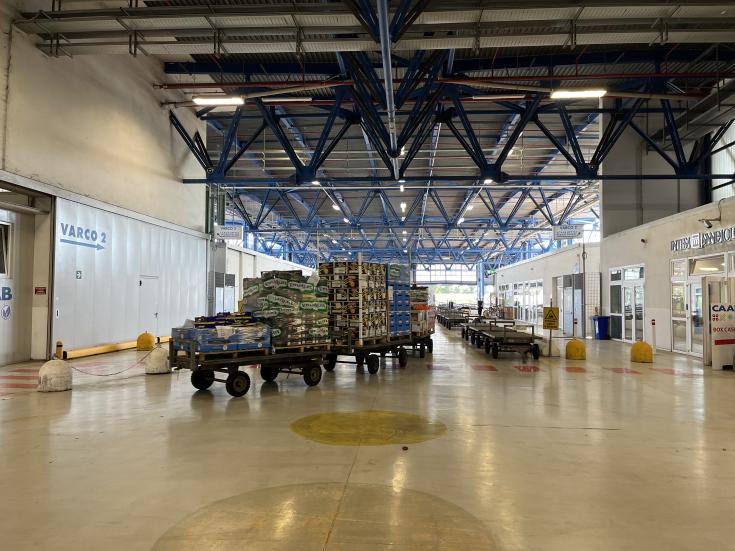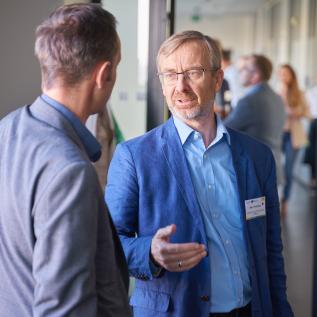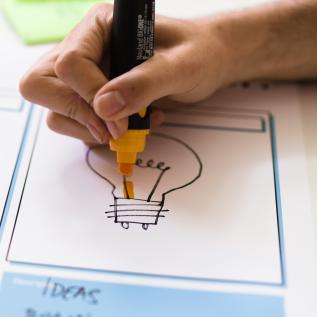Decarbonisation of fisheries and aquaculture in the Region Emilia-Romagna

On 5-6 June 2024, the Policy Learning Platform held an onsite peer review for the General Directorate of Agriculture, Hunting and Fishing of the Emilia-Romagna Region, which requested advice regarding their policy challenge on how to decarbonise the fisheries and aquaculture sector in the region.
Peers from across Europe
Peers from across Europe
Alongside Katharina Krell and Astrid Severin, our Thematic Experts on ‘Greener Europe’, four excellent peers participated in the peer review:
- Angelo Kouwenhoven, Senior Policy Advisor Domestic and International Fisheries Policy, Ministry of Agriculture, the Netherlands
- Jaap Broodman, Strategic adviser Fisheries and Aquaculture, Province of Zeeland, the Netherlands
- Claire Adam, Fishery and Aquaculture Unit, Maritime affairs Department, Regional Council of Brittany, France
- Dr Malte Dorow, Head of Department, Inland and Coastal Fisheries, State Research Agency, Mecklenburg-Vorpommern, Germany
Some Recommendations
The coast in Emilia-Romagna (“Costa Romagnola”) is not only famous for its hospitality and beach resorts, but fishing and aquaculture are an integral part of the cultural and socioeconomic fabric of the region.
Within the Smart Specialization Strategy (S3) of the Emilia-Romagna Region (2021-2027), the S3 "Blue Growth" thematic area concerns all areas of activity of the maritime economy and aims at directing growth in the fisheries and aquaculture sector towards a more sustainable model.
In particular, the Blue Bioeconomy concerns the regional "fish supply chain" and provides support for innovation actions for marine biotic resources (sustainable and circular fishing and aquaculture, ecosystem services, biodiversity and combating the spread of alien species).
To achieve the presented policy targets, the peers recommended the following:
- Collect and analyse fleet data, types of ships, engine power, fuel type, age of ships and related CO2 emissions
- Understand CO2 emissions of each step in the supply chain (incl. logistics and transport, cold storage, waste generated, etc.)
- Aggregate data at regional level to assess current regional baseline situation and later to assess regional progress towards decarbonisation goals
- Build a regional vision for the decarbonisation and more circularity in the fisheries and aquaculture sectors along with a strategy, action plan involving all stakeholders in a multi-level and multi-stakeholder approach
- Enhance awareness-raising and training about sustainable fishing and waste reduction and promote regionally produced climate-friendly fish through certification and labels
- Provide funding support and incentives to encourage fuel switch as well as vessel retrofits to reduce emissions
- Provide funding to and encourage all relevant actors to decarbonise the entire value chain including ports, cold stores, fish markets and transport
- Proactively work on the prevention of fishing waste
- Encourage recycling programmes for fishing waste i.e. through biogas and composting
- Support innovative circular economy projects and structures and agreements such as the Clean Scheldt Agreement or the Oyster Covenant
You can find additional information about the peer review recommendations and their implementation by Emilia-Romagna region in the follow-up report.
“A big thank you to the peers for this pleasant experience, the policy suggestions and collaboration opportunities. This has been very useful for all of us.”
“Two inspiring and interesting days. It will help me to work on the decarbonisation of the fleets and I bring back ideas for my region such as the Sea Ranger programme from Mecklenburg-Vorpommern.”
“We are all facing the same challenges to decarbonise and transform the fisheries sector. Therefore, it really helps to look at the same problems from different angles and exchanges on potential solutions. I am looking forward to future collaboration.“
12-07-2024 Follow-up report - Emilia-Romagna peer review.pdf

Peer review publication
Find more information on the methodology and experiences of previous beneficiaries in our publication.

Apply for a peer review
Start your peer review application process today and find solutions to your policy challenge with our expert and peers!


